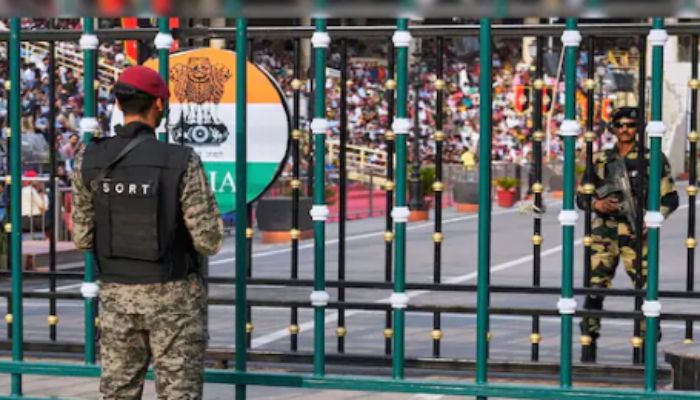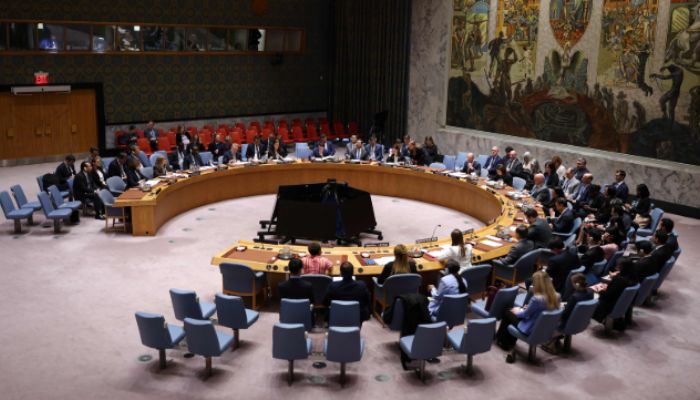Tensions between India and Pakistan have once again gripped global attention following the April 22 terror attack in Pahalgam, Jammu and Kashmir. As accusations fly and diplomatic relations sour, the United Nations Security Council (UNSC) is set to hold a closed-door consultation today to discuss the situation. With both nations taking assertive positions, the developments threaten regional stability and draw in international concern. The UNSC meeting, held under the Greek presidency, is expected to provide a platform for both sides to present their stances amid growing international anxiety.
The Trigger: Pahalgam Terror Attack
The immediate spark behind this escalation was a deadly terror attack in Pahalgam on April 22, which claimed several lives and reignited long-standing hostilities between India and Pakistan. Indian authorities quickly linked the attack to Pakistan-based terror outfits, citing “sustained cross-border terrorism” as a direct cause. In response, New Delhi launched a diplomatic and security offensive, including major retaliatory actions that heightened tensions to a dangerous level.

India’s Stern Response
India responded firmly, taking a series of aggressive diplomatic and economic steps aimed at isolating Pakistan. Among the most notable actions was the suspension of the Indus Waters Treaty, a landmark water-sharing agreement between the two countries that dates back to 1960. India also expelled Pakistani military attaches, closed the Attari land transit post, and launched outreach efforts to the non-permanent members of the Security Council.
In its official stance, India condemned Pakistan for what it described as repeated acts of state-sponsored terrorism. Indian officials also warned the UN against becoming a platform for what they termed “Pakistani propaganda” and reiterated that any move by Pakistan to politicize the issue would be counterproductive.
Pakistan’s Diplomatic Push
Pakistan, on the other hand, has denied any involvement in the Pahalgam attack and called for a “neutral investigation.” It took swift diplomatic steps by reaching out to the United Nations. Islamabad formally requested closed consultations at the UN Security Council, aiming to highlight what it called a “threat to regional peace and security” stemming from India’s actions.
Pakistan’s foreign office emphasized that the suspension of the Indus Waters Treaty could be considered a violation of international agreements and even warned that such actions would be viewed as an “act of war.” Islamabad also closed its airspace to Indian airlines and suspended trade with India, including via third-party countries.
Also Read: India’s Air Defense at Risk: China Allegedly Sharing S-400 Data with Pakistan
Ambassador Asim Iftikhar Ahmad, Pakistan’s Permanent Representative to the UN, justified the call for Security Council involvement by stating, “This is a real threat to regional and international peace, and the Council has the legitimate mandate to address such developments.”
UN Security Council’s Role and International Concern
The UN Security Council’s closed consultation—scheduled under the presidency of Greece—includes all 15 member nations, both permanent and non-permanent. Greece’s Permanent Representative and UNSC President for May, Ambassador Evangelos Sekeris, issued a balanced statement ahead of the meeting. He reaffirmed the Council’s condemnation of terrorism in all its forms, while also acknowledging concerns about the rising tensions in South Asia.
The five permanent members—China, France, Russia, the UK, and the US—are expected to play a crucial role in shaping the narrative during the meeting. The ten non-permanent members, which include Pakistan, Greece, Denmark, Guyana, Algeria, Panama, South Korea, Sierra Leone, Slovenia, and Somalia, will be hearing from both India and Pakistan behind closed doors.
India has already engaged diplomatically with several non-permanent members to counter what it views as misinformation from Pakistan and to prevent the internationalization of a bilateral issue.
Implications for Regional Stability
The situation remains highly volatile, and the implications are profound. The Indus Waters Treaty, once considered a model of peaceful conflict resolution, now hangs in the balance. Suspension of this treaty could not only hurt bilateral ties but also lead to a humanitarian and environmental crisis in Pakistan, which relies heavily on the waters flowing from India.
Additionally, the closure of airspace and trade routes is already affecting economic activity and mobility in the region. If diplomatic tempers are not cooled soon, there is a risk of these tensions spilling over into military skirmishes or further terror incidents.
Global Reactions and Next Steps
The international community is closely monitoring the developments. Countries like the US, UK, and Russia have historically encouraged bilateral dialogue between India and Pakistan, but given the gravity of the current situation, they may now push for more active mediation. Human rights organizations and conflict resolution bodies have also voiced concern over the rising rhetoric and the impact on civilians.
As the UNSC holds its closed consultations, the hope is that diplomatic efforts can prevail over escalation. While it is unlikely that the Security Council will issue a formal resolution—given the closed nature of the meeting—it may facilitate backchannel diplomacy that can help ease tensions.
Conclusion
The UNSC meeting marks a critical moment in the ongoing India-Pakistan conflict following the Pahalgam terror attack. With both nations unwilling to back down and global peace hanging in the balance, the world watches closely. The international community must now engage proactively to prevent a worsening of relations between these nuclear-armed neighbors. The path forward requires restraint, dialogue, and above all, a commitment to regional stability and peace.











